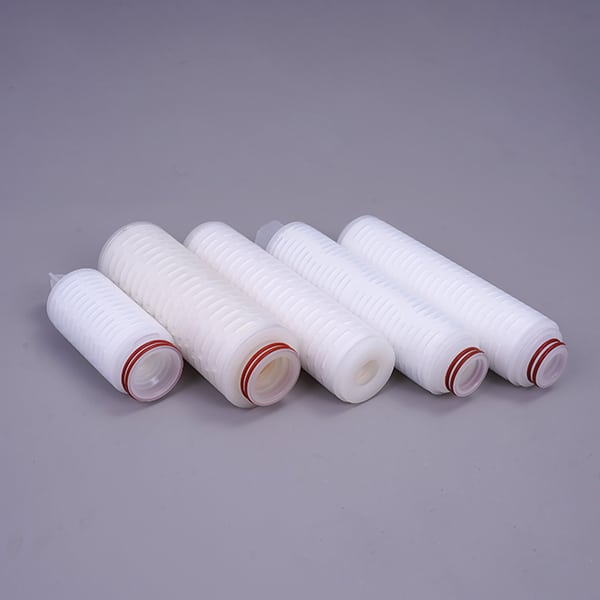
200 Micron Nylon Mesh: Precision Filtration for Optimal Performance
In the realm of filtration, achieving the right balance between effective particle removal and maintaining flow efficiency is crucial. The 200 micron nylon mesh offers an ideal solution for applications requiring precise filtration of medium-sized particles. With its robust design and versatile applications, this mesh is an excellent choice for various industrial and commercial processes where quality and reliability are paramount.
This article will explore the features, benefits, and diverse applications of 200 micron nylon mesh, highlighting why it is a valuable asset in the field of filtration.
What is 200 Micron Nylon Mesh?
200 micron nylon mesh is a woven filter fabric crafted from high-quality nylon (polyamide) fibers. The “200 micron” designation refers to the size of the mesh openings, which can filter out particles as large as 200 microns (0.2 millimeters). This mesh size strikes a balance between effective filtration and high flow rates, making it suitable for a range of applications where precise particle control is required.
Key Benefits of 200 Micron Nylon Mesh
- Effective Filtration
One of the primary benefits of 200 micron nylon mesh is its ability to capture particles up to 200 microns in size. This level of filtration is particularly useful for removing medium-sized debris, sediment, and other contaminants from liquids or gases. By effectively filtering out these particles, the mesh helps maintain the purity and quality of the output, protecting downstream equipment from potential damage.
- Durability and Strength
Nylon is known for its strength and durability. 200 micron nylon mesh is designed to withstand challenging conditions, including abrasion, high temperatures, and exposure to various chemicals. Its robust construction ensures a long service life, reducing the need for frequent replacements and contributing to overall cost savings.
- High Flow Rates
Despite its filtration capabilities, 200 micron nylon mesh allows for high flow rates, which is crucial in applications where efficient throughput is necessary. The mesh is engineered to provide effective particle removal while maintaining smooth and uninterrupted fluid flow, ensuring optimal performance and efficiency in your processes.
- Chemical Resistance
Nylon’s resistance to a broad spectrum of chemicals makes 200 micron nylon mesh suitable for use in environments where exposure to acids, bases, solvents, and other chemicals is common. This chemical resistance ensures that the mesh maintains its filtration performance and structural integrity even in aggressive processing conditions.
- Versatility and Customization
200 micron nylon mesh is highly versatile and can be customized to meet specific application requirements. Available in various sizes, shapes, and configurations, it can be tailored to fit different filtration needs. This adaptability makes it a valuable component for a wide range of industries.
Applications of 200 Micron Nylon Mesh
- Water Filtration
In water treatment systems, 200 micron nylon mesh is used for pre-filtration to remove larger particles and debris from water sources. This initial filtration helps protect finer downstream filters and ensures that the water is clean and suitable for various uses, including drinking, industrial processes, or irrigation.
- Agricultural Irrigation
For agricultural applications, 200 micron nylon mesh is employed in irrigation systems to filter out debris and larger particles from irrigation water. This helps prevent clogging of irrigation equipment and ensures that water is distributed evenly across crops, promoting efficient irrigation and healthy plant growth.
- Chemical Processing
In the chemical processing industry, 200 micron nylon mesh is used to filter chemicals, solvents, and other fluids. It helps remove medium-sized particulates that could affect the quality of chemical products or the performance of processing equipment. Its chemical resistance makes it suitable for use in various chemical environments.
- Food and Beverage Industry
The food and beverage industry benefits from 200 micron nylon mesh in applications such as filtering ingredients, separating larger particles from liquids, and ensuring product quality. The mesh’s durability and ease of cleaning make it suitable for use in food processing and production environments, where maintaining high standards is crucial.
- Mining and Mineral Processing
In mining and mineral processing, 200 micron nylon mesh is used for separating larger particles and debris from mined materials or slurries. This application helps in the efficient processing of ores and minerals, ensuring that valuable materials are recovered while minimizing waste.
- Construction and Concrete
In construction and concrete applications, 200 micron nylon mesh is used for reinforcing and separating materials. It can be employed in concrete batching processes to filter out larger aggregate particles or in construction sites to prevent debris from contaminating construction materials.
Why Choose 200 Micron Nylon Mesh?
- Efficient Filtration: Effectively captures particles up to 200 microns, ensuring clean and contaminant-free output.
- Durable and Reliable: Made from strong nylon fibers, offering resistance to abrasion, chemicals, and high temperatures.
- Maintains Flow Rates: Provides effective filtration while allowing high flow rates, essential for smooth operation.
- Versatile and Customizable: Suitable for a wide range of applications and available in various sizes and configurations.
Conclusion
200 micron nylon mesh is a high-performance filtration solution that meets the diverse needs of various industrial and commercial applications. Its ability to filter medium-sized particles, combined with its durability and high flow rates, makes it an excellent choice for water treatment, agricultural irrigation, chemical processing, and more. By incorporating 200 micron nylon mesh into your filtration systems, you ensure reliable performance and efficiency, making it a valuable asset for achieving optimal results in your processes.


100 Micron Nylon Mesh: A Reliable Solution for Filtration and Screening

150 Micron Nylon Mesh: The Ideal Solution for Precision Filtration

25 Micron Nylon Mesh: The Perfect Solution for Precision Filtration

40 Micron Nylon Mesh: Precision Filtration for Superior Performance

400 Micron Nylon Mesh: High-Performance Filtration for Diverse Applications

50 Micron Nylon Mesh: A Versatile Filtration and Screening Solution

500 Micron Nylon Mesh: Robust Filtration for Industrial and Commercial Applications

